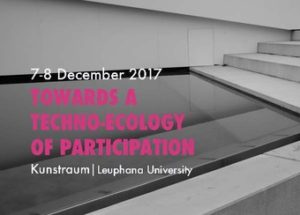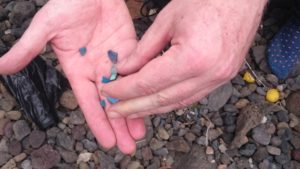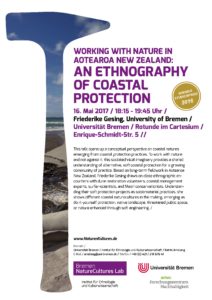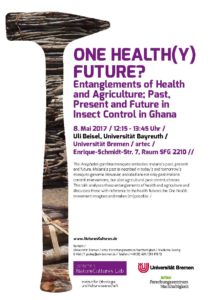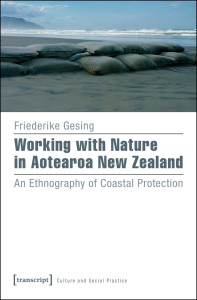Banu Subramaniam (Prof. of Women, Gender, Sexuality Studies at the University of Massachusetts, Amherst) will be our guest for next week.
Writing NatureCultures – Workshop with Banu Subramaniam
Monday, 19.6.17 | 12 (s.t.!)-13:45 | SFG 2210
Against the background of our previous discussions of NatureCultures as heuristic tool or of case studies tackling naturecultures emprically and analytically, this little workshop puts the emphasis on writing naturecultures. For approximating how we can and do write (make visible) naturecultures, we are very happy that Banu Subramaniam will join and share her experiences with writing and mixing genres in „Ghost Stories for Darwin. The Science of Variation and the Politics of Diversity“ (2014, Ludwik Fleck Prize 2016) with us. Taking her book as a starting point we would like to discuss questions like the following: What are good formats and genres of describing, narrating, storying, assembling, writing the commingling of nature(s) and culture(s)? What consequenses does an „opening up of epistemic authority“ have for writing naturecultures? How does „writing naturecultures“ differ from „writing cultures“? How is the idea of „being haunted“ transforming the author’s position / voice.
If you have not yet had the chance to read/look into the book please check out at least the attached introduction for preparation.If you are interested in reading further but do not have access to the book, write an email to amelang@uni-bremen.de and we will provide you with the files.
Counter-Narratives of the Enlightenment: Tales from the edges of Science and Religion in India – Talk in the World-of-Contradiction lecture series
Wed, 21.6.17 | 18-20h | Rotunde (Cartesium)
Banu Subramaniam explores the worlds of science and religion in contemporary India. In contrast to other religious fundamentalisms, Hindu nationalism embraces science as an important and critical part of religion. Religious nationalists in contemporary India have selectively, and strategically, used rhetoric from both science and Hinduism, modernity and orthodoxy, western and eastern thought to build a powerful but potentially dangerous vision of a Hindu nation. With aspirations for a global and modern Hinduism, she argues that scientific and religious practices in contemporary India are inextricably interconnected and result in fluid processes and practices of both institutions. In her presentation, she explores how mythological narratives, preternatural tales, and ghostly apparitions mingle effortlessly with animist traditions as well as the material, experimental, and institutional practices of technosciences. This emerging “syncretic pragmatism” challenges us to move beyond the oppositional stances of science and religion, to consider counter narratives to the enlightenment tales of reason and unreason. Ultimately to understand contemporary technoscience in India, we need new epistemological and methodological tools, and story making practices to make visible the many phantasmogoric naturecultural worlds within.
